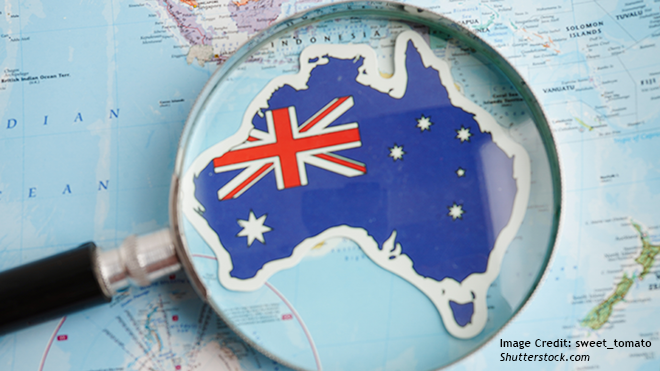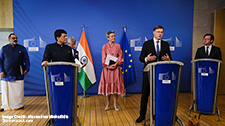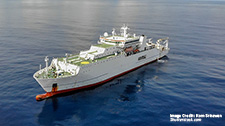Navigating the Indo-Pacific: How Australia and the EU Can Partner for Peace, Stability, and Prosperity

Jagannath Panda and Richard Ghiasy
To navigate the choppy waters of the Indo-Pacific, the EU and Australia must be on the same wavelength regarding shared interests in rules, values, and an open and liberal economic order. Headwinds are plenty as the underpinnings of peace and stability are currently frail in an era of Indo-Pacific (re-)ordering. Proactive minilaterals and the agency of middle powers such as Australia provide tailwinds.
Besides dealing with a more assertive China, five key areas of convergence between the EU and Australia are: 1) Rejuvenating the multilateral trading system, which currently prioritizes security over efficiency and is suffering from a partially defunct WTO, 2) Providing developmental assistance in critical infrastructure and digital transformation via Global Gateway, 3) Coalescing support for climate action, particularly in the vulnerable Pacific Islands, 4) Exploring ways to increase the geopolitical resilience of ASEAN, a critical actor, and 5) Enhancing maritime security in the region. The EU and Australia must rely on each other’s strengths to expand their roles as security enablers across the Indo-Pacific.
If the EU wants to be taken more seriously as a global geopolitical actor, its role and (perceived) effectiveness in the Indo-Pacific is the litmus test.
- The EU and Australia can help build regional capacity for maritime security, combating piracy, and promoting freedom of navigation. This aligns perfectly with Australia’s strategic focus on the region and the EU’s present naval presence.
- The EU and Australia must also rely on each other’s strengths to expand their roles as security enablers. As both are making efforts at re-engagement, the EU’s existing presence in the Western Indian Ocean and Australia’s focused outreach in the Pacific must be leveraged to expand their initiatives across the Indo-Pacific.
- A key collaboration area is also crisis management; the Australia-EU Framework Partnership Agreement (FPA) is intended to identify areas of greater security cooperation. Lending civilian expertise to crisis response while investing in capacity building as a testament to third-country cooperation must not remain commitments on paper and be judiciously implemented.
- With advanced cyber capabilities, the EU and Australia can partner to build regional cyber resilience and counter cyber threats, especially in the health sector. Collaborating in norm-setting for the Indo-Pacific and focusing on providing cyber-safety training to countries may ensure a stable and just digital space— combating disinformation is also crucial.
Related Publications
-
Needed, a Framework to Protect Undersea Cables
In the data-driven world we live in, submarine cables are the arteries that connect nation-states and their people in literally every human activity, including trade, commerce, entertainment, and social interactions. […]
-
ISDP Annual Report 2023
ISDP’s Annual Report for the year 2023. We look back on 2023, a year in which tensions and conflicts captured the strategic space in ISDP’s focus areas, making headlines around […]
-
EU-Thailand FTA Negotiations: IUU Fishing and Human Rights Remain Obstacles
Thailand’s fishing industry, which at its height saw as many as 200,000 migrant workers from neighboring Laos, Myanmar, and Cambodia caught in a brutal system of abuse, withered global criticism […]
-
Trade, Connectivity and Supply Chains in EU-India Relations
In the decade and a half since 2007 when the EU and India first started their FTA negotiations, the world economic order has undergone a sea change. During that period, […]
-
The Quad and Submarine Cable Protection in the Indo-Pacific: Policy Recommendations
This policy brief analyzes the Quadrilateral Security Dialogue (Quad) initiative on submarine cables in the Indo-Pacific and offers a timely roadmap as to how best to protect them. It first […]




